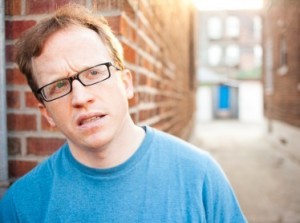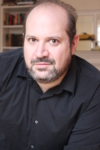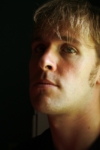 Last winter, Full Stop introduced “The Situation in American Writing,” a questionnaire adapted from The Partisan Review that asked questions about literature’s responsibility to address seismic changes in culture, the publishing industry, and the political and geopolitical landscape. That questionnaire, which featured responses from Marilynne Robinson, George Saunders, Victor LaValle, T.C. Boyle, Dana Spiotta, and dozens of other writers was illustrative of the concerns and preoccupations that writers carry with them when practicing their craft.
Last winter, Full Stop introduced “The Situation in American Writing,” a questionnaire adapted from The Partisan Review that asked questions about literature’s responsibility to address seismic changes in culture, the publishing industry, and the political and geopolitical landscape. That questionnaire, which featured responses from Marilynne Robinson, George Saunders, Victor LaValle, T.C. Boyle, Dana Spiotta, and dozens of other writers was illustrative of the concerns and preoccupations that writers carry with them when practicing their craft.
This year we are interested in the situation of writers, rather than writing, in the subjective experience of writing fiction (or in this case, memoir), rather than fiction’s responsibilities to respond to a rapidly changing world. To this end we are interested in examining the trying intellectual, creative, and emotional labor that is often unacknowledged or effaced in the public presentation of writing. What we’re interested in, to put it another way, is pathos.
This year, we’ve crafted a questionnaire asking writers about the effect writing has had on their physical, emotional, and economic health; on the idea of poverty being a precondition for writing well; on what makes writing truthful to one’s self and to readers. Ultimately, we are interested in the consequences of pursuing writing as a vocation.
Chris Gethard is the author of A Bad Idea I’m About to Do, a collection of personal essays culled from a truly bizarre adolescence and early adulthood. He is also a hilarious improviser who can be seen in person at the Upright Citizens Brigade Theatre and on public access television as the host of The Chris Gethard Show (described by the New York Times as an “anti-talk show“). Last year, he was adopted by IFC.
Chris is also the brother of “The Greggulator,” controversial host of The Holding Court Basketball Podcast and regular caller to The Best Show on WFMU.
How has your decision to write affected your health? Has it had negative effects on your personal life?
Writing has by and large only had positive effects on my personal life. I spend most of my time as an on stage performer and as someone who chases acting gigs and auditions and what not. That’s such a grind and such an emotional battlefield – your ability to have good shows and get professional opportunities is contingent largely upon people deciding in a split second whether or not they like you upon first glance. Writing gives me a chance to do something more personal, more zen, and that I’m way more in control of. So, being that the rest of my life is somehow even more of a mind-fuck than writing, I find it to be peaceful and rewarding.
As far as my personal life goes, the main detriment has been that I write non-fiction essays and it makes people wary of opening up to me. Some people who were featured in my book were none too pleased about it. And it’s pretty much standard at this point that when I start dating a woman she at some point very nervously asks me not to include stories of her in any of my writing. That’s a drag. I’ve sort of given away the entire idea of a personal life by writing very honestly about it, so it makes people wary of being a part of that personal life.
There is long tradition that links the craft of writing with poverty. Do you think that’s appropriate? Does poverty feel like the most appropriate condition for your practice as a writer?
I certainly didn’t break the bank with my book deal. I enjoy writing solely because I like putting things on paper, seeing them come into existence, and figuring out whether or not the words click with people. I’m not necessarily poverty stricken because my creative work spans all areas of comedy and writing is one piece of that puzzle. But absolutely, if writing was the only work that came through on any given year and I booked no other gigs outside of it, I would 100% definitely be on food stamps.
In a rare 1983 interview the enigmatic and often dour Romanian writer Emil Cioran speaks about only reading Nietzsche’s letters because he became concerned with how untruthful Nietzsche’s published works seemed when read against the miserable condition of his day to day existence (isolated, weak, sickly, certainly not characterized by any sense of vigor). Is there any sense in which the truth of one’s condition should be related to the truth of one’s writing, even if in an oblique sense?
It would be impossible for me to describe how out of the scope of my intelligence this question is. I write stories about herpes scares and getting colonics.
Are you envious of other people’s success? If so, are you more envious of people’s success in your field or outside of it? Why?
I long ago trained myself out of the habit of worrying about other peoples’ success. Over the years I’ve seen talentless people become household names, I’ve seen geniuses remain secrets in the back of shady comedy clubs, but mostly I’ve seen people who wind up where they are supposed to be as long as they work hard. I have my fair share of jealousy and bitterness, but it’s something that passes quickly these days and I’ve learned never to begrudge anyone their success. This probably goes hand in hand with my experience that “success” in the sense we all chase it doesn’t relate to happiness anyway… so what is there really to be jealous of?
Mostly when I get into this mind state, I think of Morrissey’s song, “We Hate It When Our Friends Become Successful”. For most life lessons, I turn to Morrissey, like the emotionally stunted forever in arrested development human being that I am.
Aside from writing, do you have any other marketable skills? If so, are you ever tempted to cease writing fiction entirely so you can live a more stable life?
As mentioned, I make most of my income as a comedian. Writing is one of the ways in which I attack getting my creative voice into the world, but television, film, and stage work are all aspects of that, as are writing television/movie projects. Between all of these things I would say I have a life that is “stable enough”.
Give one example in which you had high hopes for success (artistic, commercial, or otherwise) but had those hopes dashed.
In 2010, I was cast as the lead in a sitcom on Comedy Central that flamed out publicly and quickly. It has become a life defining experience. It was supposed to be my big break, but in reality it simply exposed the gears of the system and showed me that the system was as unreliable and unpredictable as anything else. The experience didn’t make me happier when it came together, it didn’t make me sadder when it failed. Realizing this allowed me to operate with a lot more freedom, as I’m now aware that my happiness comes to me in small ways and that the constant chase of success has no real end in sight anyway. I’ve learned to enjoy the process way more than I ever did. Success brought as many headaches as it did any sense of victory.
Do you feel like the world owes you a chance to make a living as a writer?
Once again, your questions make me think of Morrissey. “England is mine – and it owes me a living!” I will always be a slightly sad fifteen year old.
The world owes me nothing. All I can do is work hard. If I do work I believe in fully, and work as tirelessly as possible to get it out into the world in a way that I see fit, I will have no regrets when I inevitably get hit by a bus at the age of 34.
What is the strongest emotional reaction you have ever elicited from a reader, either in your written work or during a reading? What is the strongest emotional reaction you have ever elicited from yourself during the writing process?
My book talks openly about my struggles with depression (have I mentioned I’m a Morrissey fan?). Once it was published, it opened a floodgate of fans reaching out to confide in me or ask for advice about their own similar issues. This has been a dizzying experience that I don’t take lightly. In the summer of 2012 I received an anonymous message via Tumblr from a fan who was contemplating suicide. It was scary. I wrote a public response that a lot of people seemed to find positivity and hope in. From receiving that letter to the anxiety that came with writing my response to the positive reaction, that experience was an emotional roller coaster that I can’t imagine replicating again.
I recently sat down to write an essay about something totally frivolous and halfway through realized I was instead writing an explanation to myself and to a girl I had broken up with after being together for eight years. It was the only experience I’ve had where I wasn’t sure what I was putting down on the page, since my brain and fingers were working more quickly than my ability to process the feelings that were causing me to obsessively write. It was cathartic, to say the least.
When are you at your most truthful as a writer?
Every time I sit down! I was drilled as a comedian to pursue the idea of “truth in comedy”. Things that are honest get the most honest reactions from a crowd, and I’ve learned the danger of faking it or forcing it time and time again throughout the years. My writing follows the same ideals as all of my comedic work and since writing is the most personal form my work takes on, I can’t help but be honest. Probably too honest. I wish my mother hadn’t read some of the things I wrote in my book. Sorry mom.
This post may contain affiliate links.







